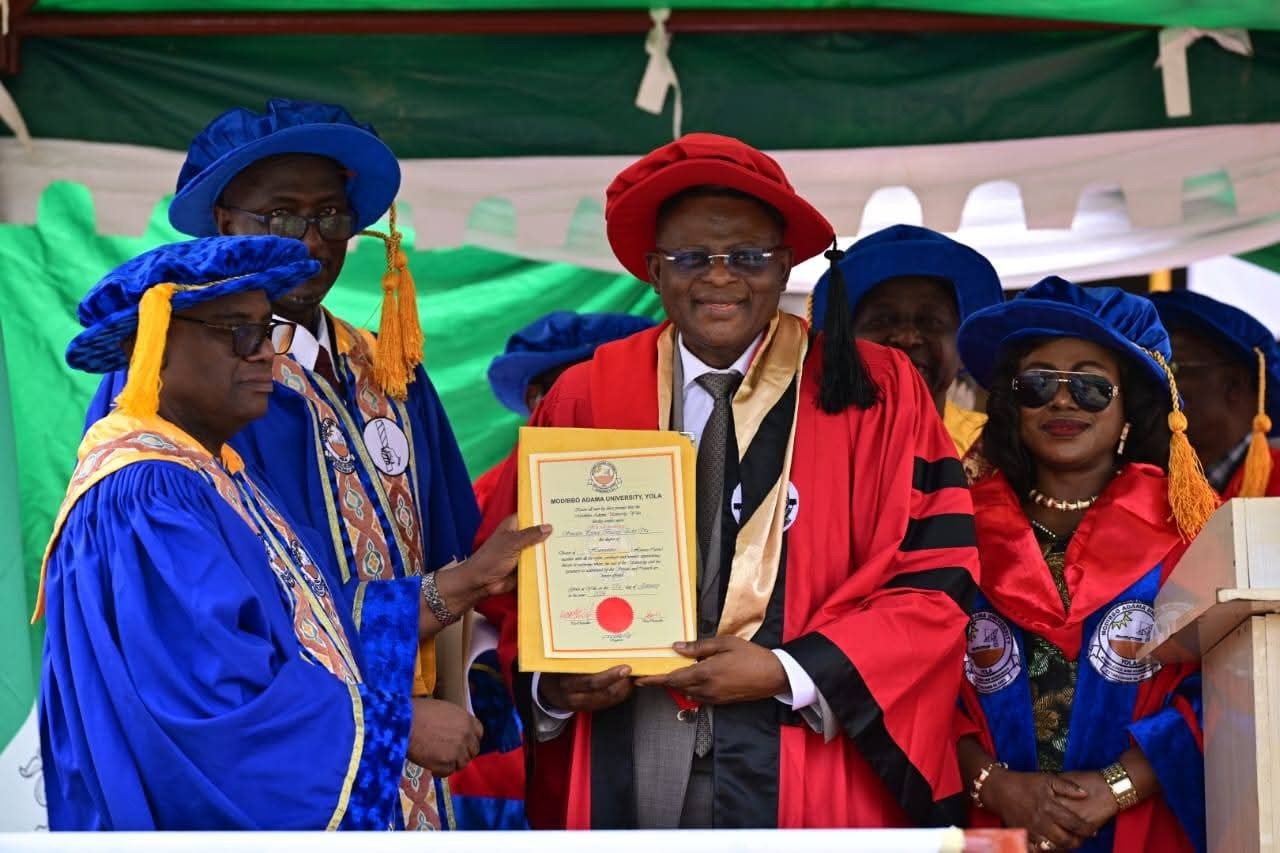
“When the trumpet sounds only for kings, the village sage returns to his yam barn, humming the songs of silence.”
Obuma, Son of Soil, Act II, Scene I
And so it came to pass that the famed citadel on the banks of the Great River, our beloved University of Calabar, reached the milestone of fifty years, a half-century journeying through the corridors of knowledge, chiseling minds, and forging destinies. One would imagine such a moment would be cloaked in reflective sobriety, a thanksgiving for the many voices she has birthed, some loud, some hushed, all significant.
Alas! What unfolded was not an academic convocation of excellence, but a masquerade ball for the nouveau riche. A golden jubilee, yes, but gilded in superficiality, choreographed in materialism, and soaked in melodramatic foolery.
The celebration, if we may call it that, was a grand performance of misplaced priorities. A spectacle where the stage was reserved for society’s so-called ‘success stories’, political juggernauts, tycoons of questionable largesse, and public office holders adorned in designer guilt. The roll call of honourees read like a stock exchange listing, not an academic compendium. No mention of the humble teacher shaping destinies in a mud-walled classroom in Ikom; no seat for the retired civil servant whose pen never once trembled under the weight of corruption; no applause for the farmer in Obudu whose innovation feeds his community.
In this tragicomedy, worth was measured not by service, but by status; not by impact, but by income. And so the university, once a sanctuary of substance, chose to anoint spectacle as scholarship, wealth as wisdom, and flamboyance as excellence.
It begs the question: Is the soul of the university now auctioned to the highest bidder?
Let us not mince words. A university, true and noble, must be the memory-keeper of all its children, not merely those with fat accounts or political clout, but those who, with quiet dignity, uphold the tenets of humanity in the farthest fields of life. If the institution that taught us rhetoric can no longer discern between relevance and resonance, then it has failed not only us, but itself.
Let us dramatize it.
Scene: The Great Hall. Banners wave, drums beat, and lights dazzle. A voice from the wings whispers:
CHORUS OF THE FORGOTTEN:
“Where is our name on the scroll?
Where is our footnote in this fanfare?
We, who taught them to read,
We, who stitched the wound,
We, who toiled unseen,
Are we not also the children of Calabar?”
NARRATOR (wearing a tattered academic gown): “No one calls your name, but your shadows stretch across every success story they clap for.”
Let it be known: universities are not museums of marble statues but living hearths for all flames, great and small. It is not too late. The institution may yet retrace her steps, like a queen who, drunk on adulation, stumbles but regains composure, if only she listens not to the clinking of glasses but the whisper of forgotten alumni.
As one of the twenty-eight pioneering students who studied theatre Arts under the great Dexter Lyndersay, and as one of the seven who christened that rugged wilderness “Malabor,” I write not with bitterness, but with the burden of memory and the fire of truth.
The University of Calabar must return to her roots, scour her valleys and verges, and rekindle her honor. She must seek out those who succeeded without spectacle and built without billboards. Only then can we truly celebrate, not a farce in golden robes, but a festival of minds, hearts, and histories.
For until the unsung are sung, the golden jubilee remains but a brass echo in the marketplace of mediocrity.
Eno, is a member of the Unical Theatre Arts Pioneering Class of ’76-’80.












